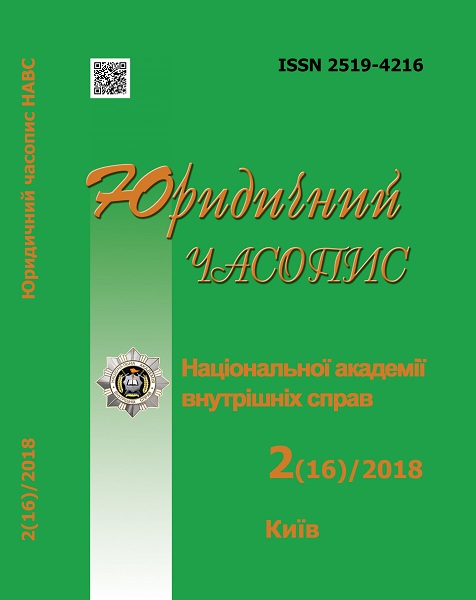The Problem of Determining Mediation Restrictions
Abstract
The purpose of the article is to identify and address mediation constraints. On the basis of the analysis of scientific views of scientists and norms of the current legislation of Ukraine, restrictions on mediation are defined and considered. It is stressed that a number of limitations in legal relations concerning mediation is related to the legal status of their central subject – the mediator. First of all, we are talking about the limitations associated with gaining this status. It is substantiated that such restrictions may be of a diverse nature, but will always be related to the legal status of legal entities in the field of mediation. It is noted that the parties themselves find the way to resolve the dispute, and the mediator only organizes the process of negotiations, removes emotional stress, refocusing the attention of the parties from the point of view of interests, removes the psychologicalstructures and other barriers that prevent the adoption of joint decision by the parties, facilitates dialogue and partnerships relations between the parties. It is concluded that the establishment of clear restrictions in the field of mediation, their further proper legislative consolidation should contribute to more effective protection of the rights, freedoms and interests of data subjects of legal relations. Under such restrictions, we propose to understand a set of conditions that through their normative fixing determine the interconnection of permissions and prohibitions applicable to the right status of mediation actors in order to protect and protect their rights, freedoms and interests, and prevent their unlawful violation. As the main restrictions that exist in the field of mediation today, the following can be called: regarding the category of legal conflicts in relation to which mediation may be applied (impossibility of concluding an agreement on reconciliation); regarding time limits for mediation; associated with the acquisition of a personʼs legal status of the mediator (the legal personality of the mediator); concerning the functioning of the mediator professional secrecy institute.
Downloads
Abstract views: 110 PDF Downloads: 48
Copyright (c) 2019 Law Magazine of the National Academy of Internal Affairs

This work is licensed under a Creative Commons Attribution-NonCommercial-NoDerivatives 4.0 International License.
- Authors reserve the right to authorship of their own work and transfer to the magazine the right of the first publication of this work under the terms of the Creative Commons Attribution License, which allows other persons to freely distribute published work with mandatory reference to authors of the original work and the first publication of an article in this magazine.
- Authors have the right to enter into separate additional agreements on non-exclusive dissemination of the work in the form in which it was published in the journal (for example, to post an article in the institution's repository or to publish as part of a monograph), provided that the link to the first publication of the work in this journal is maintained.
- The journal's policy allows and encourages the posting of articles by authors on the Internet (for example, in electronic storehouses of institutions or on personal websites), both before the submission of this manuscript to the editorial office and during its editorial processing, as this contributes to the creation of a productive scientific discussion and positively affects the efficiency and dynamics of citing the published work.




